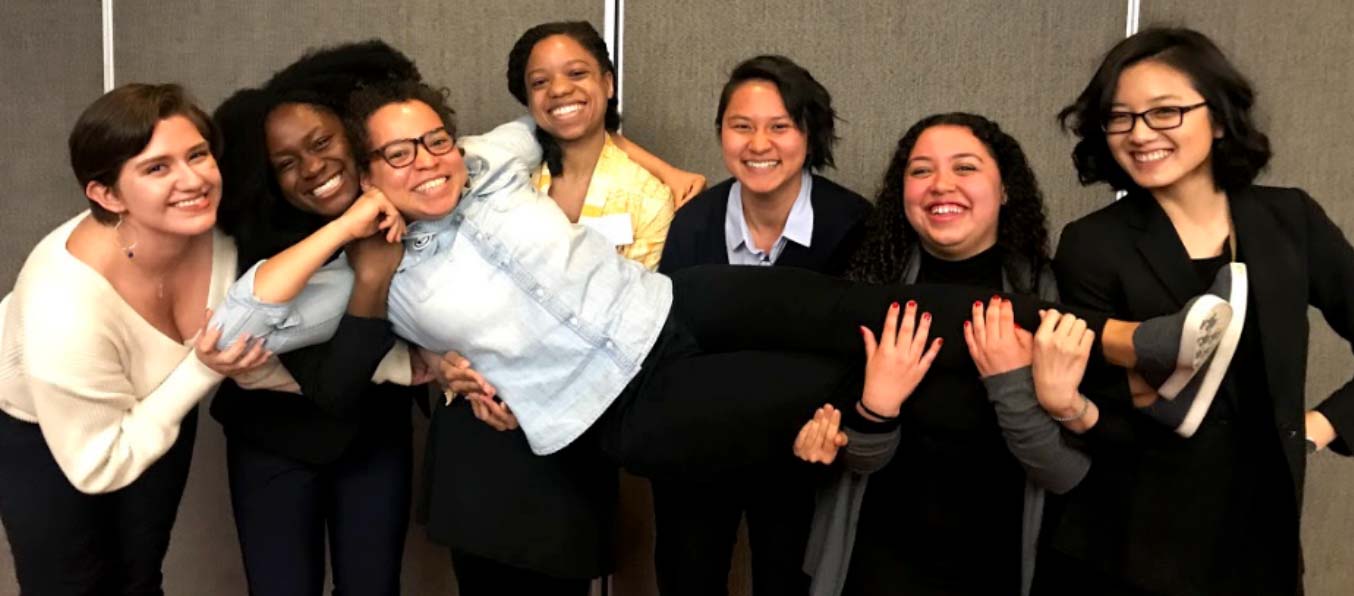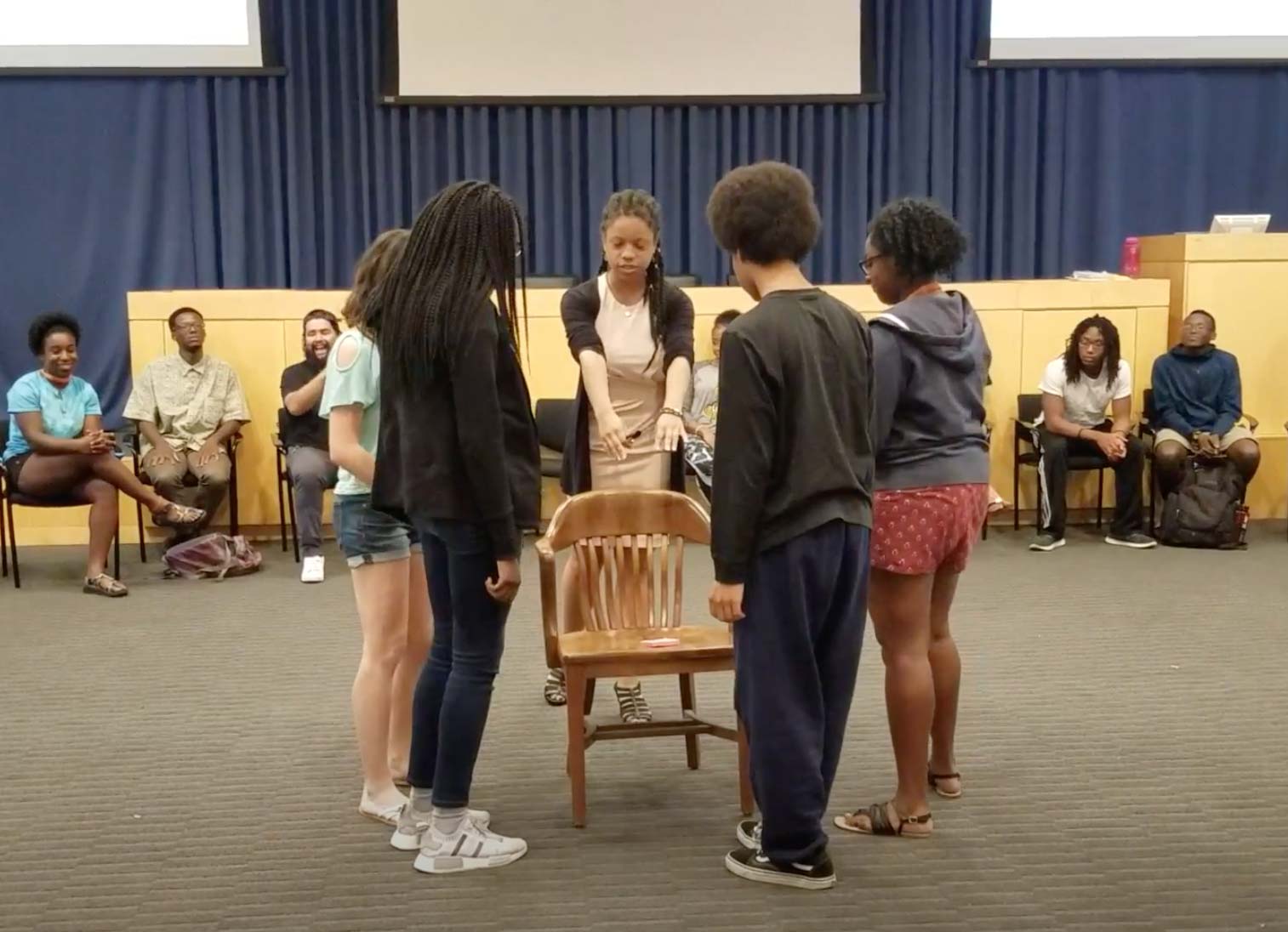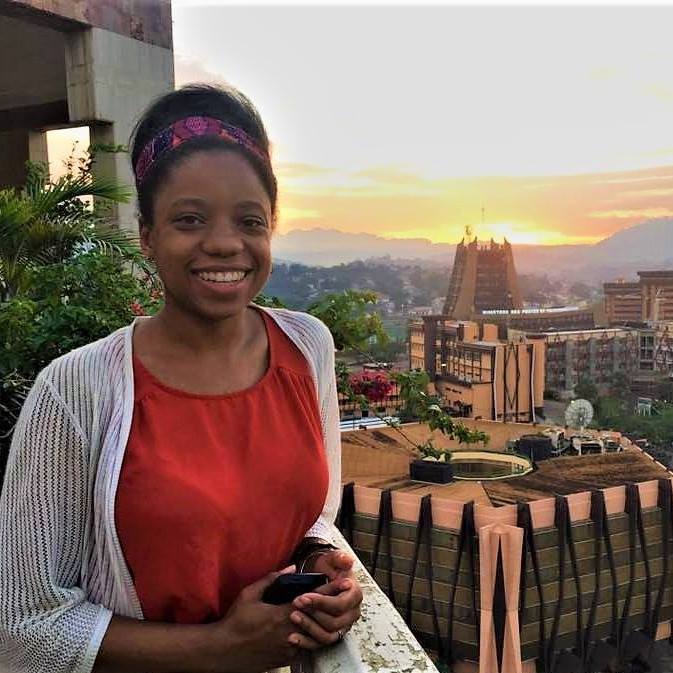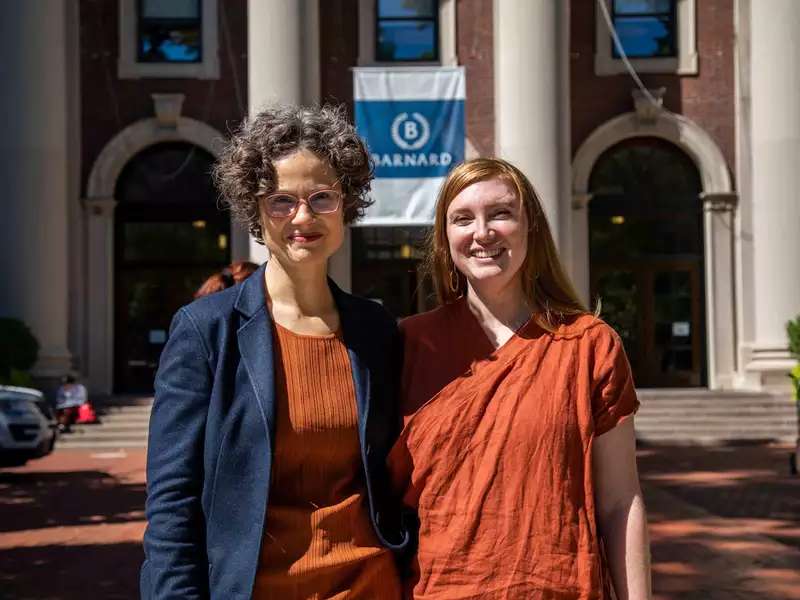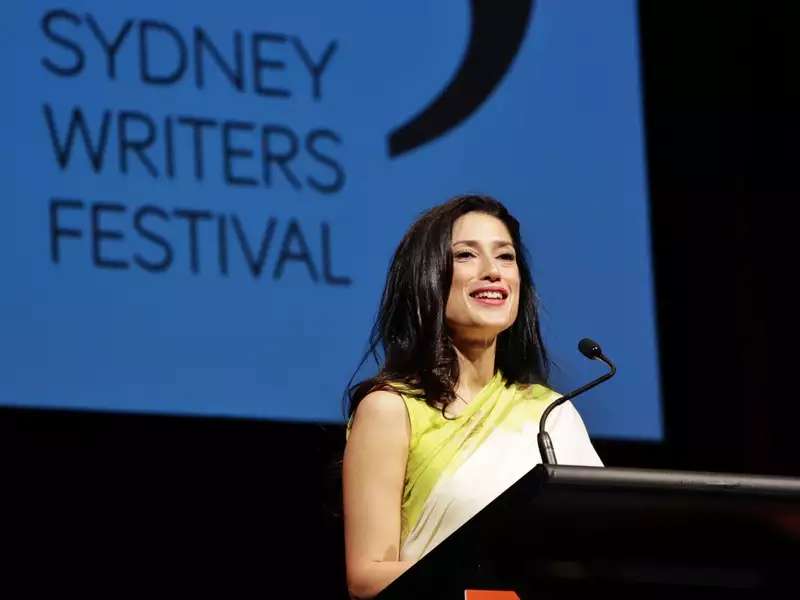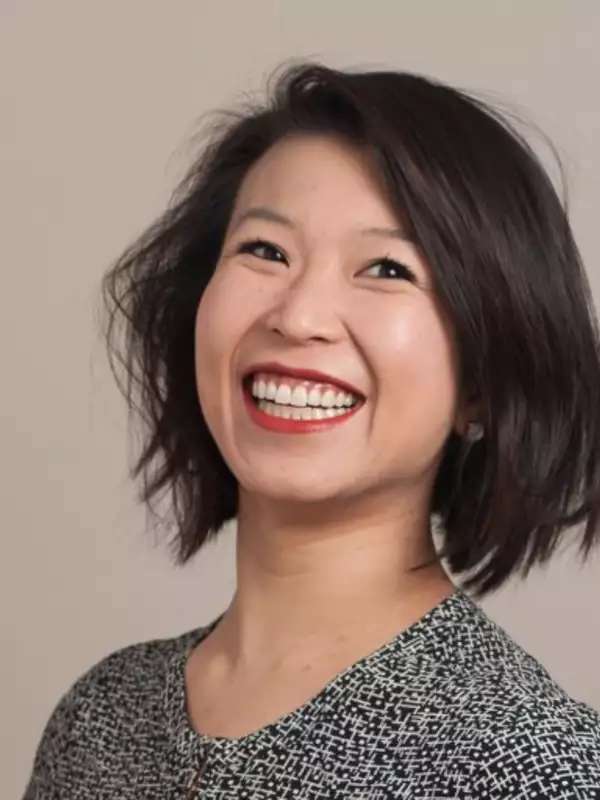As the nation moved through a summer of demonstrations in demand of racial justice and changes to public policy into a record-breaking early voting season for Election Day (November 3), many people wondered: How do public policies shape political participation and perceptions of the government? This question is at the heart of the research conducted by Amber Mackey ’18, recently one of 24 first- and second-year political science Ph.D. students inducted into the American Political Science Association (APSA) Minority Fellows Program (MFP).
“I grew up around Delaware County, a diverse but highly segregated suburb of Philadelphia, which is sandwiched between exorbitantly wealthy towns and resource-deprived communities,” Mackey said of her research inspiration. “There was a constant juxtaposition between these areas that made me incredibly frustrated and angry. When I spoke to my parents about injustice they asked, ‘What are you going to do?’ My reflex was to first understand the issue and then work with others to fix it.”
At Barnard, Mackey majored in political science and sociology, two disciplines she said equipped her with the tools needed to understand the societal injustices she saw around her. “Within these majors, I had the opportunity to study the real, tangible implications of institutions on individuals,” Mackey explained. More importantly, the peer collaborators and faculty mentors she engaged with on campus offered her a better understanding of what could be built in place of the current broken systems, while also providing a sense of community.
For example, during her sophomore year, when she became a Mellon Mays Undergraduate Fellow, Mackey and her peer fellows met on Friday mornings to talk about their research projects and futures. “My cohort of fellows were genius, bold Barnard women who performed research that mattered to them and to their communities,” Mackey said. Monica L. Miller, professor of English and Africana studies and dean of faculty diversity and development — herself a two-time Andrew W. Mellon Foundation recipient (2012, 2001) — and former dean Michelle Tollinchi-Michel often invited guest speakers to discuss the necessity and urgency of diversifying academia.
Around that same time, in fall 2016, Mackey took a seminar on American elections — which focused on felon disenfranchisement policies across several states — taught by assistant professor of political science Michael G. Miller. He became an invaluable mentor to Mackey who credits Miller with encouraging her to persevere, even after she started to question her field of study and career path as a political science professor following the 2016 presidential election.
“Throughout the entire process, Professor Miller provided countless skills that were essential to becoming a political scientist,” said Mackey. “I am deeply grateful for his consistent encouragement during my journey of becoming a scholar-activist.”
While at Barnard, Mackey also looked for learning opportunities beyond the gates “to bridge the gap between the campus and the city,” she said. With the nonprofit Peace by PEACE, Mackey learned how to structure lesson plans that reflected students’ knowledge back to them instead of forcing them to study outdated materials. At InterVarsity, she served meals to those who were housing insecure and worked with a team to meet their needs.
“These practices shifted my mindset from focusing on a career that would do good to being a person who does good in all arenas,” Mackey said.
Indeed, Mackey has already started to produce meaningful work. When many were fretting over the latest election polls, she focused on underreported crises across the nation and what she could do to ameliorate them. As a teaching assistant at University of Pennsylvania, she educates her students on disenfranchisement, protesting, and mutual aid projects. She has also partnered with nonprofit organizations to gather and analyze data on mass incarceration, protests, and public opinion, as an Urban Leaders Fellow in New Orleans and an intern at the nonprofit EMIDA Cameroon.
In her own research, Mackey studies three key issues that have sometimes hit close to home: how public policy is formed and the implementation of missing-persons policies — which became of interest to Mackey following the July 2020 kidnapping and murder of two-year-old King Hill, a Black toddler, near Mackey’s home in Philadelphia; how political behavior and participation, such as voting, are shaped by negative experiences with governmental institutions; and how identities impact the accessibility and execution of various research methods, which she became interested in after she experienced sexual harassment when working in ethnography and exit polling.
“As I endeavor to eventually become a professor, I am interested in doing the work so that my students are not subjected to these same experiences within the field and outside of it,” Mackey said. “I am focusing on the resources I can leverage to care for my communities.”
This passion to use political science to serve and protect others, to offer her students the same tools of empowerment she received from Barnard, will only grow as Mackey settles into her APSA fellowship. “I am thinking about the ways I can exercise influence as an individual before it is too late,” Mackey said. When it comes to public policy problems, she believes solutions can be found in people who care enough to ask: How do policies shape perceptions of the government and political participation? With a little more time, Mackey is determined to find the answers and then educate others.
